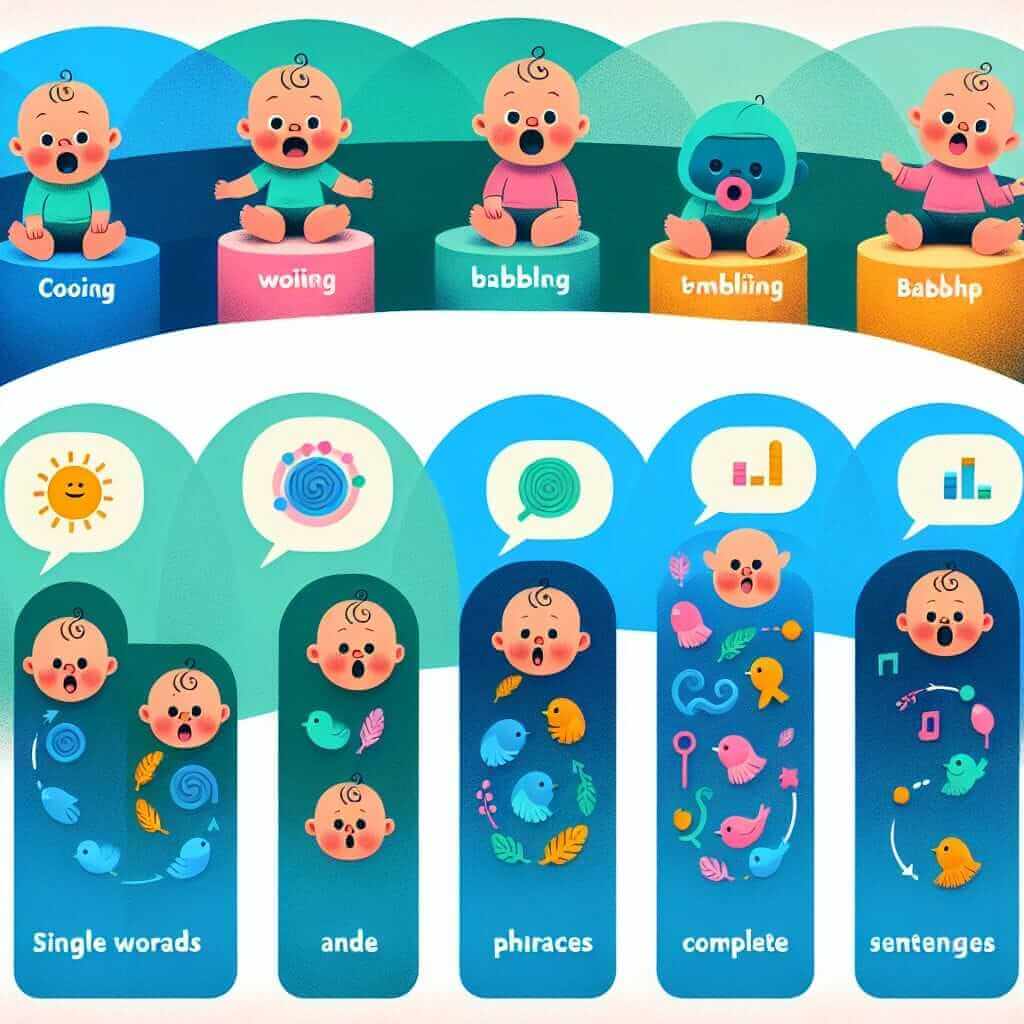As an IELTS instructor with over 20 years of experience, I often encounter students intrigued by the question: “Why don’t babies talk like adults?” This seemingly simple question can actually be a goldmine for IELTS Speaking, especially when explored from linguistic and developmental perspectives.
The Relevance of “Why Don’t Babies Talk Like Adults?” in IELTS
This topic, while appearing straightforward, allows you to demonstrate a range of skills crucial for IELTS Speaking:
- Fluency and Coherence: Discussing this requires connecting ideas about child development, language acquisition, and cognitive processes in a smooth and understandable manner.
- Vocabulary: You can showcase your knowledge of specialized vocabulary related to linguistics, psychology, and even biology.
- Grammar: Explaining complex processes like language development necessitates using a variety of grammatical structures accurately.
Understanding Language Acquisition
The Stages of Language Development
Babies don’t start speaking complete sentences right away. They go through distinct stages:
- Cooing and Babbling: Infants produce vowel sounds, then move on to consonant-vowel combinations (“bababa,” “mamama”). This stage is about experimenting with sounds.
- One-Word Stage: Around their first birthday, babies begin uttering single words (“mama,” “dada,” “ball”) to convey meaning.
- Two-Word Stage: This stage marks the beginning of syntax as toddlers combine two words (“want milk,” “go park”).
- Telegraphic Speech: Children string more words together, often omitting grammatical function words (“me go store”).
- Full Sentences: Gradually, children acquire grammar rules and develop more complex sentence structures.

Biological and Environmental Factors
Language acquisition is a complex interplay of:
- Biological Predisposition: Humans are born with a brain hardwired for language learning.
- Social Interaction: Interaction with caregivers provides the essential input for language development. Children learn through imitation, correction, and reinforcement.
IELTS Speaking Tips: Mastering the Topic
Vocabulary Enhancement
- Cognitive development: Refer to the mental processes involved in thinking, learning, and understanding.
- Linguistic milestones: Key stages in a child’s language acquisition journey.
- Nature vs. nurture: The debate about the relative influence of genetics and environment.
- Imitation and reinforcement: Key mechanisms in language learning.
Sample IELTS Speaking Response
Examiner: Why do you think babies don’t talk like adults?
Candidate: Well, it’s a fascinating question! It’s not simply that their vocal cords aren’t developed enough. Language acquisition is a gradual process, influenced by both biology and environment. Babies start by experimenting with sounds – cooing and babbling. They then progress to single words and eventually form sentences, gradually mastering grammar and syntax. This takes time and constant interaction with adults.
Examiner: Do you think it’s more important for parents to speak clearly to their children or to let them learn at their own pace?
Candidate: That’s a tough one! I believe a balance is key. Clear speech provides a good model, but it’s equally crucial to encourage a child’s attempts, even if they make mistakes. Constant correction might discourage them, while positive reinforcement motivates them to keep learning.
Conclusion
The topic of “Why don’t babies talk like adults?” offers a rich platform to showcase your IELTS Speaking skills. By understanding the stages of language acquisition and using relevant vocabulary, you can deliver a well-structured and insightful response that will impress the examiner. Remember to practice speaking on this and similar topics, drawing upon your knowledge and experiences to present a confident and engaging discussion.